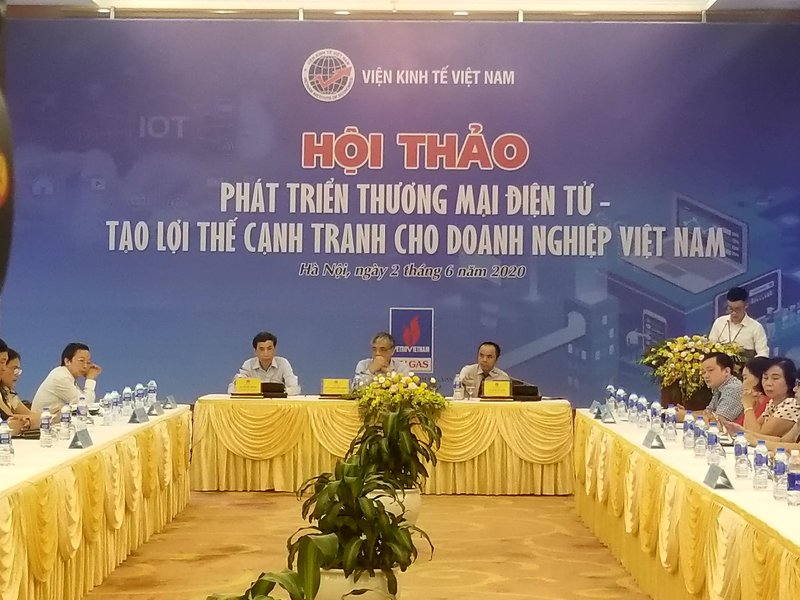Low credibility hinders development of e-commerce in Vietnam
Up to 90% of online shoppers in Vietnam still prefer cash payment over online transactions, mainly due to security concern and a preference to check product quality before paying.
While e-commerce has become an indispensable part of enterprises’ operation since the Covid-19 outbreak, the lack of trust from customers, among other issues, is hindering its development in Vietnam, according to Le Xuan Sang, deputy director of the Vietnam Institute of Economics.
| Low credibility hinders development of e-commerce in Vietnam. Photo: Hai Yen. |
“A more favorable legal environment, high quality human resources and credibility are key factors that could help boost local enterprises’ competitiveness through e-commerce,” Sang said at a conference on June 2.
On this issue, Le Duc Anh, director of the Center for Information and Digital Technology of the Vietnam E-commerce and Digital Economy Agency, said 90% of online shoppers in Vietnam still prefer cash payment over online transactions, mainly due to security concern and a preference to check product quality before paying.
“This shows that customers have not placed their trust on sellers, the products, customer services and prices, among others,” Anh added.
Referring to Amazon, Anh said that without having to adverstise, this website is still the top choice for customers globally.
Moreover, people are visiting the platform to see reviews of products, this is due to the fact that Amazon allows sellers to review buyers and vice versa.
For Vietnam to take advantage of e-commerce as a way to enhance businesses' competitiveness, Anh said they have to build trust among their customers.
“It is essential that customers feel safe during their online shopping experiences, from information verification, dispute settlement, delivery quality and secure payment,” Anh stated.
Economist Vo Tri Thanh, former vice director of the Central Institute for Economic Management (CIEM), expected the government to soon finalize a legal framework and regulations for e-commerce and cashless payment activities.
A clear and predictable legal environment would encourage more enterprises to take part in e-commerce and enhance their competitiveness, Thanh added.
Statistics showed Vietnam’s ecommerce market has been growing at annual rates of 30 – 40% during the 2015 – 2018 period, taking the total revenue from US$4 billion to US$8 billion.
The figure is forecast to hit US$13 billion in 2020, higher than the estimate of the national plan for Vietnam’s ecommerce development in the 2016 – 2020 period which expects a market size of US$10 billion by 2020.
It is estimated that nearly 40 million smartphone subscribers and internet users have shopped online in Vietnam.
Under a national plan for the development of e-commerce by 2025 released on May 18, the Vietnamese government set the target of achieving around 55% of the population shopping online with an average spending of US$600 annually by 2025.
Revenue from online sales of business-to-consumer e-commerce, known as B2C e-commerce, is set to grow by 25% per year to US$35 billion, accounting for 10% of total goods retail sales and service revenues.
Meanwhile, the government expects the share of population using related services, including non-cash payment services, would be at 50%, and through intermediary payment services at 80%.
By 2025, 80% of e-commerce websites should be integrated with online shopping and 70% providing e-invoices.
Notably, Hanoi and Ho Chi Minh City would make up half of e-commerce revenues in the next five years.
According to GlobalData’s 2019 Banking and Payments Survey, cash is still the most preferred payment mode for e-commerce purchases in Vietnam, accounting for 35.6% in 2019. Alternative payment solutions are gradually gaining ground and accounting for 15.5%. MoMo is the most preferred alternative payment solution in Vietnam, followed by PayPal.













